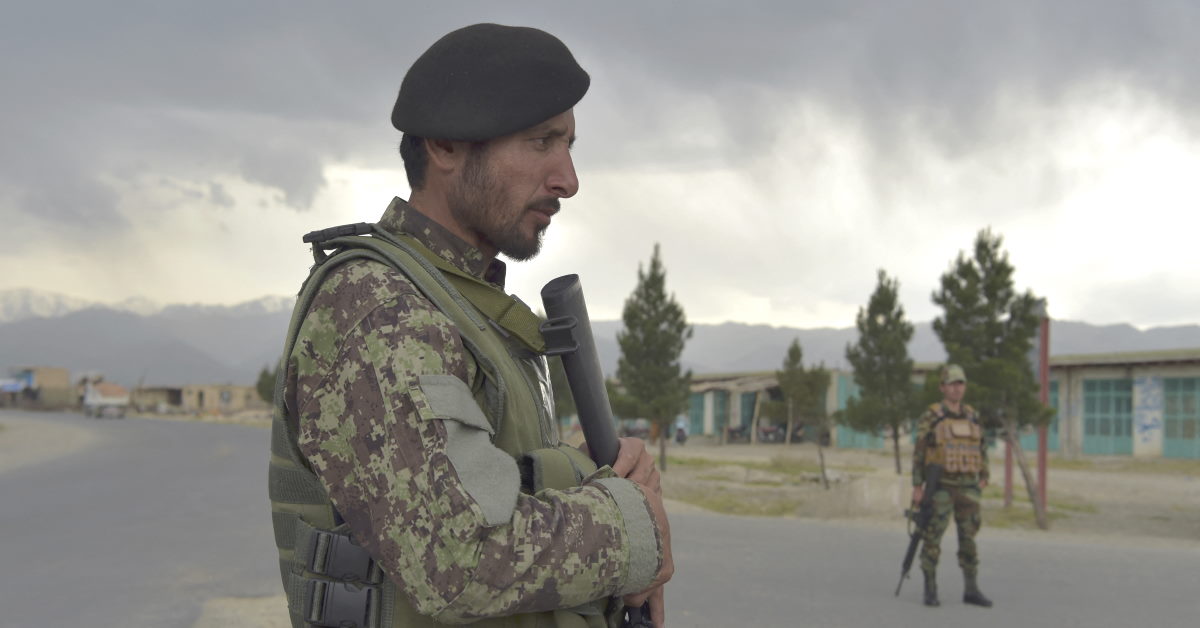One of the most crucial early tests for United States (US) President Joe Biden concerns Afghanistan. An emboldened Taliban have escalated their campaign of assassinations and terrorist attacks since reaching a deal with Donald Trump’s administration that called for power sharing in Kabul and a full US military withdrawal by 1 May.
Biden’s policy course will not only determine Afghanistan’s fate, but will also affect regional security, the global war on terror, and America’s international standing at a time when its relative decline has become unmistakable.
The US came full circle in February 2020, when Trump, seeking to cut and run from Afghanistan, signed a “peace” agreement with the same terrorist militia that the US had removed from power by invading the country in the aftermath of the attacks on 11 September, 2001.
Trump’s Faustian bargain, struck behind the back of the elected Afghan government, bestowed legitimacy on the Taliban. The surge in terrorist violence since then shows how little Afghanistan gained from the US-Taliban deal.
It makes sense for America to exit a long and futile war that has cost more than US$800 billion and the lives of 2,218 US service members. (The US and NATO combat role in Afghanistan actually ended before Trump took office, with Afghan government forces assuming full security responsibility on 1 January, 2015.)
What doesn’t make sense is what Trump’s one-time national security adviser H R McMaster called America’s “Munich-like appeasement” of “some of the most horrible people on earth.”
In effect, Trump set out to abandon Afghanistan to terrorists and their sponsors in Pakistan, whose all-powerful military created the Taliban group, still harbours its leadership, and provides cross-border sanctuaries for its fighters. Pakistan’s military would be the real winner from a deal that threatens to turn Afghanistan into a weak, pliable neighbour that Pakistan can influence at will.
Yet, after taking office, Biden was quick to embrace Trump’s deal, and retained Zalmay Khalilzad as US Special Representative for Afghanistan Reconciliation. The Afghanistan-born Khalilzad has forged close ties with the Taliban but struggled to establish common ground with the Afghan government.
The Biden administration’s recently leaked draft peace proposal highlighted its frantic effort to force an Afghan settlement in order to meet the 1 May withdrawal deadline.
The proposal seeks to replace Afghan President Ashraf Ghani with a new transitional government in which the Taliban hold half of all positions. In a letter to Ghani, US Secretary of State Antony Blinken pressed him to develop “a roadmap to a new, inclusive government” and a new constitution, adding that he was asking Turkey’s Islamist government to host a meeting between Afghan government and Taliban representatives “to finalise a peace agreement.” The letter’s peremptory tone prompted Afghan Vice President Amrullah Saleh to say that Afghanistan will “never accept a bossy and imposed peace.”
Biden’s administration must answer a central question: How can a terrorist group be part of government when it remains committed to military victory and the reimposition of brutal theocratic rule? The Taliban want to secure absolute power over Afghanistan by waiting out the Americans, which explains their foot-dragging in the power-sharing talks with the Afghan government.
With the US strategy threatening to unravel, Biden now says “it’s going to be hard to meet” the 1 May deadline, but he “can’t picture” American troops being in Afghanistan next year. If Biden withdraws all US troops before 2022, a terrorist takeover of Afghanistan on his watch is highly probable. The Taliban, in fact, will take Biden’s statement as confirmation that they need only to bide their time for a few more months before laying siege to Kabul.
The debate in the US over whether al-Qaeda could rebuild a base in Afghanistan following an American exit, or whether the Islamic State (ISIS) could enlarge its footprint there, ignores the fact that Islamist terrorism is a self-organising ideological movement that unites diverse jihadist groups, without the need to coordinate action. The Taliban militia may not have a global mission, but it is a critical link in an international jihadist movement that whips hostility toward non-Sunni Muslims into violent rage against modernity.
By forcing the Americans to leave and seizing Kabul, the Taliban would inspire jihadist groups elsewhere to escalate their terror campaigns. The perception that jihadists vanquished the world’s most powerful military would nurture the belief that American power is in irreversible decline. Simply put, the Taliban wielding absolute power in Afghanistan would pose a greater jihadist threat to the free world than any other group, including al-Qaeda or ISIS remnants.
To avoid this outcome, the US must keep residual forces in Afghanistan to continue providing reassurance and air support to Afghan forces, as well as logistics aid to about 7,000 NATO and allied troops. The US now has just 2,500 troops in the country, compared to some 100,000 at the height of the war. America’s financial costs and casualties have fallen dramatically since its combat role ended, with no US fatality in the past 14 months.
Biden must choose between a complete US withdrawal, which could well unleash chaos and undermine the Afghan state, and maintaining a small residual force to avert civil war and prevent Afghanistan from becoming a terrorist hub.
The first option, far from offering America a face-saving exit from a 20-year war, would make it an accomplice of the Taliban, whose control of Afghanistan would cause lasting damage to the interests of the US and its friends.
Related Articles:

